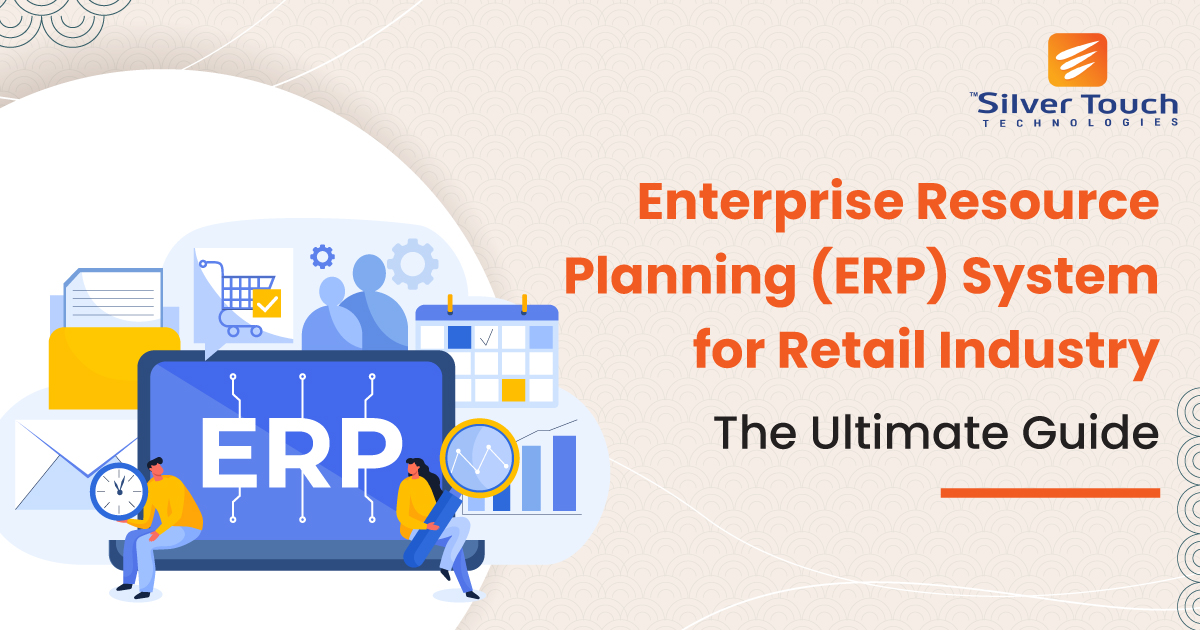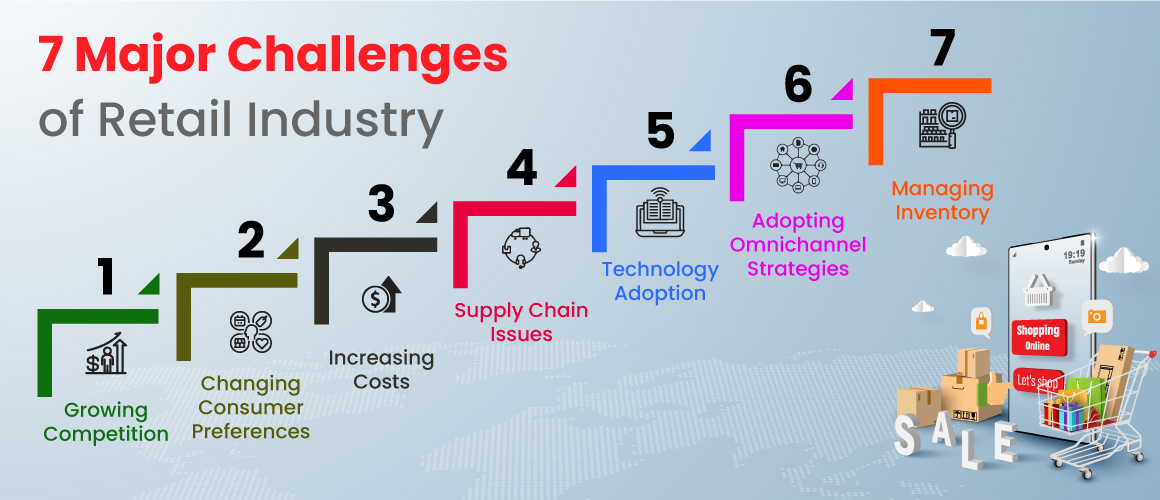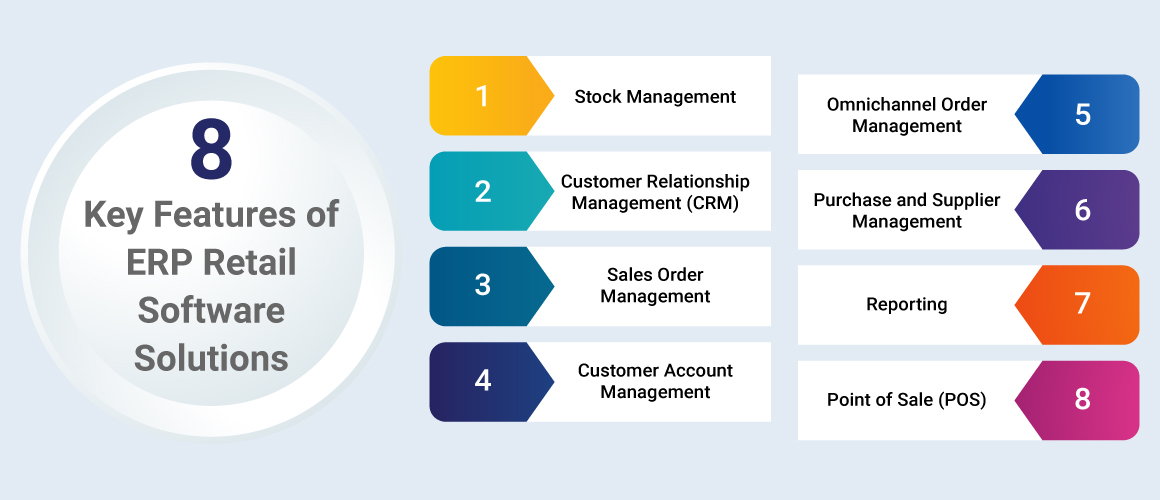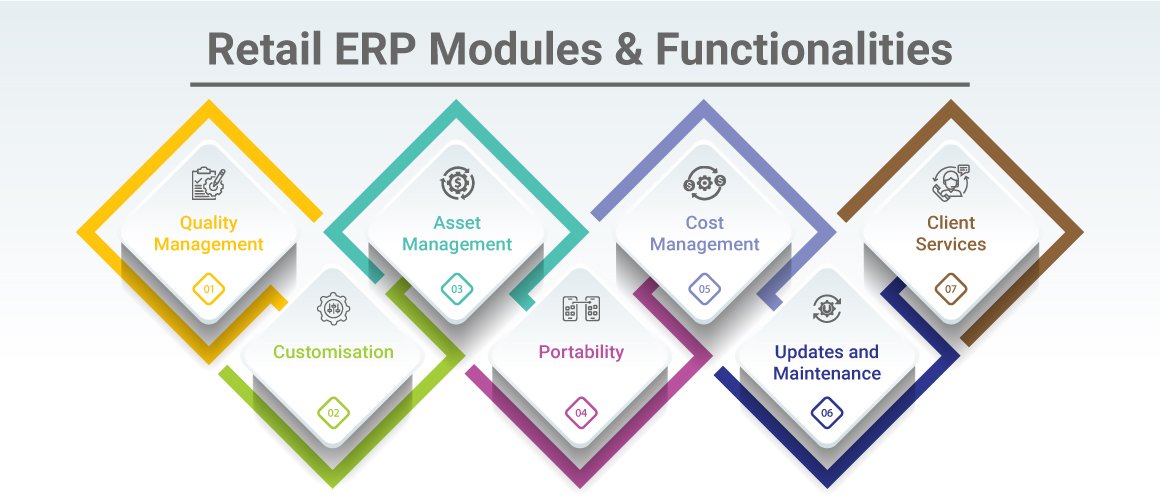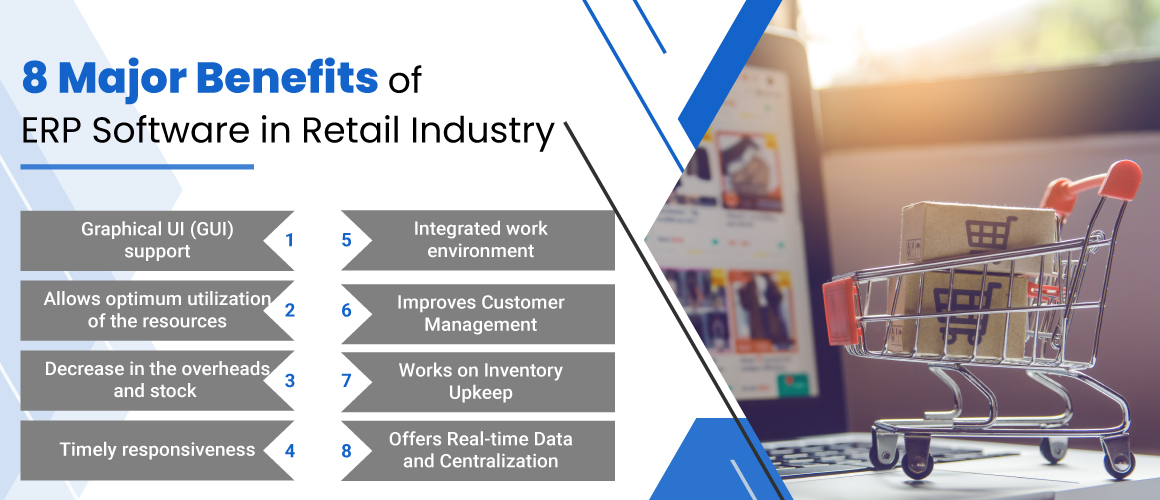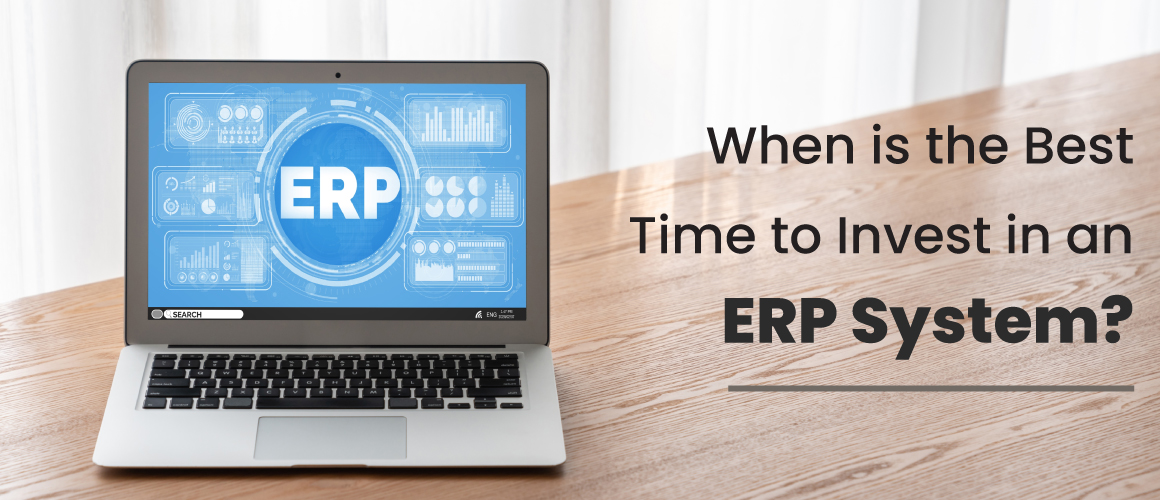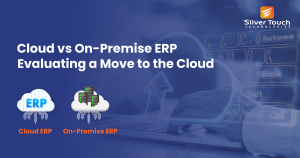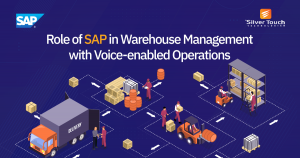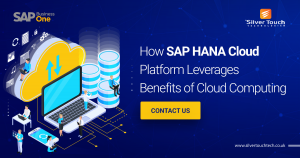ERP for Retail Industry – An Overview
Enterprise Resource Planning (ERP) has turned into an unavoidable prerequisite for the retail business, no matter what the size of the business. ERP arrangements have become vital for brands to support and stay aware of changing client requests and expanding rivalry.
ERP is a set-up of adaptable applications that empowers retailers to incorporate and deal with all significant tasks without a hitch, including taking care of multi-area stores, habitually moving stocks, estimating changes, markdown offers on items, and considerably more.
These tasks could be extensive and convoluted whenever done physically; be that as it may, ERP programming gives speedy, basic, and dependable administration arrangements expected to proficiently run organizations more. Coming up next are the main ten critical advantages of ERP programming in a retail business.
7 Major Challenges faced by the Retail Industry
Growing Competition
The retail industry is extremely competitive with large numbers of both traditional and online retailers vying for market share. Retailers have to find ways to differentiate themselves from their competitors and stand out in order to increase sales and profits.
Changing Consumer Preferences
Consumers’ preferences are constantly changing and retailers need to be able to keep up with those changes in order to stay relevant. This requires retailers to be constantly innovative and offer new products and services.
Increasing Costs
Retailers are facing increasing costs due to a variety of factors such as rising labor costs, higher taxes, and increased costs of goods. These costs can eat into a retailer’s profit margins and make it difficult to stay competitive.
Supply Chain Issues
Poor supply chain management can lead to a variety of issues such as inventory shortages, product delays, and higher costs. Retailers need to ensure their supply chains are efficient and effective in order to remain competitive.
Technology Adoption
Technology is constantly changing and retailers need to be able to keep up with the latest advancements in order to remain competitive. This can require significant investments in new technology, which can be expensive.
Adopting Omnichannel Strategies
Customers now expect a seamless shopping experience across multiple channels. They want to be able to shop online, in-store, and through mobile devices, and retailers must be able to meet this demand. This requires an omnichannel approach.
Managing Inventory
Retailers must ensure that they have the right products in stock at the right times, in order to meet customer demand. This requires accurate tracking of inventory levels and careful analysis of customer buying patterns. In addition, retailers must carefully plan for seasonal fluctuations in demand and proactively manage their inventory accordingly.
Role of ERP Software for Retail Industry
Consumers expect to shop through phones, virtual platforms, and physical stores. SAP retail solutions line up with these difficulties delightfully.
This ERP for retail has far-reaching abilities that robotize routes between the different channels of the omnichannel retail insight. It works with quick information development so leaders can arrive at the most ideal results with very educated, constant, information-driven decisions.
To put it plainly, the best ERP software for the retail industry has many advantages and elements for your association and customers. We should inspect how this solution improves on day-to-day schedules and lines up with your goals.
8 Key Features of SAP Retail Software Solutions
Retail solutions SAP addresses numerous business regions, like CRM, accounting and inventory management. Prior to assessing different retail ERP vendors, understanding these fundamental features is important.
Retail solutions SAP addresses numerous business regions, like CRM, accounting and inventory management. Prior to assessing different retail ERP vendors, understanding this fundamental feature is important.
Stock Management
As previously mentioned in our advantages segment, this coordination or capacity guarantees you keep up with your accessible materials and crude fixings. A few devices even permit you to lay out the least sums, so you’ll naturally get warnings when you hit these numbers. These alarms assist you with creating renewal methodologies prior to coming to stockouts on your high-esteem objects.
CRM
Whether you’re overseeing client criticism, evaluating explicit interest periods or creating inside and out reports, the ideal CRM prerequisites guarantee you keep clients first and settle on ideal choices. You’ll likewise fathom how you need to arrive at new benefactors with better advertising and mission strategies for online entertainment, messages, sites, and so on.
Sales Order Management
Screen each period of the deals request process from age to definite conveyance.
One request has twelve chocolate chip treats, five glazed strawberry treats, and 10 shortbread cookies. This framework can audit that request to figure out amounts, all-out costs, installment techniques, and transportation speeds. When you gather the installment, you can send the request to the cycle fabricating area to cook/process the request.
Customer Account Management
Want to compensate faithful clients? Need to make new client profiles? Want to dispense participation to long-lasting clients? This module empowers you to do these things and that’s just the beginning. Clients keep your business above water, and giving them rewards boosts them to make you want more.
Omnichannel Order Management
Start-to-finish programming the executives across channels (for example your site or actual stores) guarantees effective client orders and inventory from any medium. Perceivability into current stock licenses you to satisfy orders from any place in the production network.
Purchase and Supplier Management
Keep up with buy endorsements, cost records, quotes, source-to-pay cycles, and so forth, in one unified framework. You can likewise oversee and assess providers to guarantee they’re conveying stock things and items to the right areas.
You can likewise rate providers on how well they convey items and remove the great from the terrible and the monstrous.
Reporting
On the off chance that you don’t have the right devices, it’s anything but a stroll in the park to stay aware of examinations and reports. Whether you put resources into independent endeavors revealing programming or individual capability necessities, you can take re-thinks, file organizers and questionable information farewell.
POS
Whether you want independent programming or extra highlights and equipment, POS improves how you gather customer installments, whether it’s by means of versatile applications, self-administration stands, or at work areas in salons, eateries, or different foundations. This framework can likewise overseas clients, stock, reports, and representatives.
What are Retail ERP Modules & Functionalities?
The best ERP for retail ought to permit you to receive many rewards, including the unification of your front and administrative center cycles. Which ERP modules and usefulness are normally utilized by retailers?
- Quality Management: Quality is critical to give the best client experience to your retail clients. Guarantee your items meet quality checks and diminishing bring rates back.
- Asset Management: Oversee resources across your business including fixed resources, land, and more with retail ERP.
- Cost Management: Computerize costs, demands, and endorsements for your outreach group or Research and development group inside your ERP framework.
- Client Services: Survey your client assistance history and give better strategic pitching, up-selling, and post-deal client service to assist with conveying items all the more precisely.
- Customisation: Adaptable ERP programming that is based on an open and extensible establishment, permitting you to pick the elements that suit your business needs.
- Portability: Access your ERP information whenever so you’re freer to clients and make the most of surprising open doors as they surface.
- Updates and Maintenance: Supported by the consistency of market-driving sellers, ERP solution regularly updates to guarantee an ideal client experience.
How is ERP Used in the Retail Industry?
ERP for retail assists retailers with dealing with their organizations in a compelling and productive way by giving a steady data stream. It helps in the simple following of all deals. ERP for retail business permits automatic recording of exchanges in a continuous climate.
They have turned into a vital device to get by and increment productivity in the retail area.
8 Main Benefits of Using ERP for Retail Industry
The major serious advantages of involving an ERP system in the retail includes:
Graphical UI (GUI) support
The GUI assists the clients with cooperating with the product suite without any problem. The GUI is basic to make ERP for retail well known with the not-really specialized industry clients.
Allows optimum utilization of the resources
ERP for retail permits retailers to use their assets in an ideal way. This improvement hence converts into diminished costs and correspondingly high benefits.
Decrease in the overheads and stock
A retail ERP framework permits the association to impressively diminish the above and in this way lessens superfluous expenses for the organization.
Timely responsiveness
ERP for retail permits associations to answer any business imperatives progressively and consequently stretch out convenient reaction to any client requests.
Integrated work environment
ERP for retail offers an incorporated workplace all through the association that can be effectively checked and made due.
Versatility and flexibility
Simple adaptability choices and smooth joining with heritage frameworks are a few different advantages of ERP for retail.
Improves Customer Management
With the appropriate client relationship the board (CRM) instruments, you can notice and oversee client information, item surveys, fundamental socio-economics, request, and other basic KPIs. These capacities guarantee you know how to keep up with current clients and propose procedures to develop your current client base.
Works on Inventory Upkeep
Stock administration empowers you to keep up with accessible stock and plan for the future without over or understocking indispensable fixings.
Assuming you’re to purchase materials for your treats, you’d need to guarantee you have the necessities (eggs, milk, flour, margarine, and so on.). You can likewise get notices assuming your materials are low or terminating, so you can appropriately renew protests and try not to sully items.
Offers Real-time Data and Centralization
The ongoing retail environment is set up for retailers to answer straightforwardly and rapidly to client requests, whether it’s client support through an online entertainment stage or sending computerized conveyed bundle notices.
ERP draws in with a business in a dynamic and coordinated way, which assists leaders with acquiring an essential perspective on their retail business. Brought together information and usefulness consider quick data moves.
Without such a framework, a retailer could confront confounding connection points, disconnected valuing frameworks among channels and conflicting KPI on the board.
The Best ERP solution for SMEs of Retail Industry in the United Kingdom. Implement SAP Business One with your Business today!

How to Find the Right ERP System for Retail Business?
While choosing the best ERP for the retail industry you ought to consider many elements as this framework will influence each part of your business into the indefinite future. Each business’ rules for basic necessities will contrast somewhat, however you ought to guarantee that your ERP solution:
- Meets functional prerequisites for your business – the ERP does what it should and helps as opposed to upsets.
- What industry experience your ERP supplier has with organizations like yours.
- What client support do you really want for your ERP framework?
- What amount does your ERP cost? An ERP should be inside your business spending plan.
- How your framework coordinates with existing frameworks that will remain – you really want a framework that works across your whole business as
- opposed to numerous different frameworks.
- What customization do you want from the out-of-the-case programming?
Retail ERPs vs Traditional ERPs: 6 Key Differences
Here are 6 key differences between traditional and retail ERP solutions.
| Factors | Traditional ERP | Retail ERP |
| Structure | Complicated and difficult to maintain | Easy to implement and maintain |
| Intended User | Various industries | Only retail businesses |
| Components | Multiple separate modules | Only essential modules required |
| Features | Generic features | Specific features related to retail business |
| Focus | Focused to solve generic issues | Focused on solving challenges |
| POS System | Integration with third-party POS system | POS is included as standard solution |
Signs You’re Ready for Retail ERP System – When to Invest
This first question is difficult to measure in quite a while on the grounds that every business has remarkable game changers. A carefully chosen ERP stage can support organizations for no less than five to 10 years. A typical, stable stage with simple customization can possibly develop with your organization as it develops and changes.
Another retail business simply beginning would just require a fundamental ERP framework, while a chain (five-10 areas) will require more complicated programming. An illustration of a substitute choice is cloud ERP for retail; you can save money on forthcoming expenses since you pay more only as costs arise, and you get a more direct execution.
So, the time has come to contribute when employees are becoming restricted on tasks that could become computerized through programming. Financial considerations are fundamental as this can be a huge speculation, yet endeavoring to maintain a business across different areas could turn out to be more expensive than putting resources into an ERP system.
What are the Retail Industries that Might Need ERP Solutions?
SAP for the retail industry takes care of various retail industries, from general to cultivating and drug. Here are a few instances of other retail areas and their commencing ERP features.
General
- Product handling features, client relationship the board programming and client reliability/fulfillment devices measure and assess connections among organizations and clients.
- Different BI features assist the retail business with taking a gander at inventories, marketing projections and business processes successfully.
- Different tools will assist with business cycles like actual store organization, cost assessment and loading.
Pharmacy
- Mobile POS helps with ringing up drug store exchanges in different areas. Record-keeping features can assist with keeping up with remedy buying compliances.
- Pharmacy store ERP handles two business aspects: the client confronting the CRM, estimating and different devices and the medical care side.
- Medical tools ordinarily have temperature guideline highlights inside a stock control screen. This device improves on quality control and upgrades consistency guideline adherence.
Automotive
- Pricing tools will help with building current costs for unique hardware producers (OEM) and secondary selling items, while parts ID highlights manage stock.
B2B
- Robotized buy instruments smooth out B2B transactions.
- B2B systems offer enormous product shipments for blocks, wood, concrete, and so on.
Why SAP B1 is the best ERP Software for Retail Industry
SAP Business One for the Retail Industry is an integrated business management solution that helps retailers streamline their day-to-day operations and manage their entire business from a single source. With SAP Business One, retailers gain complete visibility over sales, inventory, customers, and operations, enabling them to make informed decisions, improve customer service, and increase profitability.
This solution helps retailers automate operations such as point-of-sale (POS) transactions, inventory tracking, customer service, order management, financials, and more. With real-time reporting and analytics, retailers can gain deeper insights into their sales and operations, helping them to identify trends and make better, more informed decisions. Additionally, SAP Business One Solution offers robust data protection and security measures, ensuring retailers’ data remains secure and compliant with industry regulations.
Want to know How much does cost to implement SAP Business One for Retail Industry in UK?
FAQs About ERP for Retail Industry
ERP for retail industry empowers organizations in the retail business to bring together all of their business cycles and information into one framework which streamlines activities and correspondence between various divisions.
The best ERP for retail organizations relies upon the size, development, productivity and make up of your retail association. Numerous ERP merchants practice or give ERP answers for the retail business, including SAP, Prophet, NetSuite, Microsoft, Infor and more.
At ERP research, we accept that there is no single best ERP answer for the retail business, as each retail business is unique – so we’d suggest checking on numerous retail ERP vendors while assessing ERP for small retail business.ERP means “Enterprise Resource Planning”. The core guideline of ERP is to consolidate the bits of programming you use all through your business into one single, bound together suite that deals with all that your business needs from one finish to another.
You can see a part of our ERP proposals for little retail organizations above, but probably the most well known ERP programming for retail incorporates SAP, Microsoft, Netsuite and Infor.
Many retail companies, be it small or large use ERP solutions. Retail users of ERP systems include Sephora, PRada, Burberry and many more.
Retail ERP software varies from software and licenses. Each project has different costs for retail ERP systems from end-to-end solutions.

